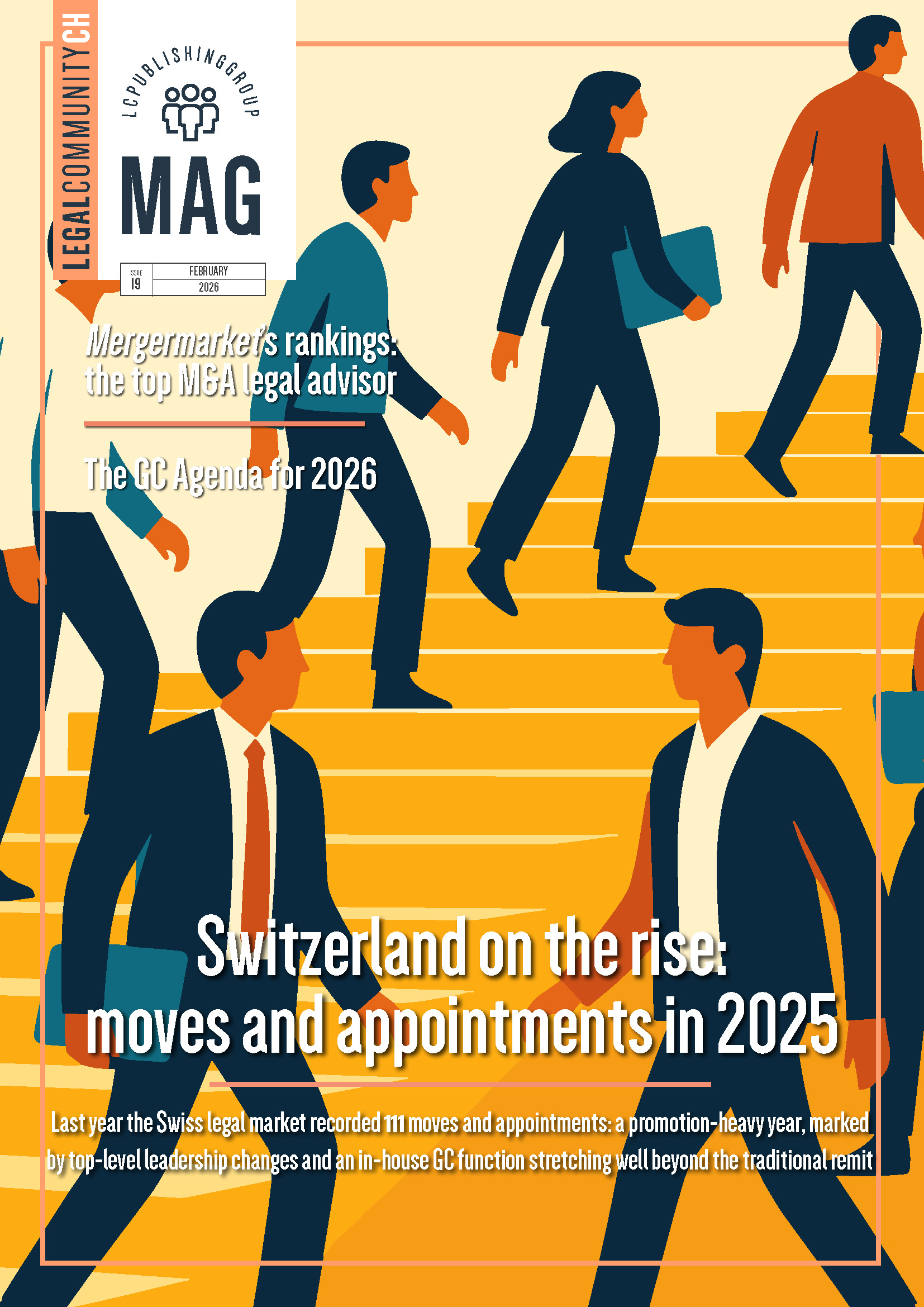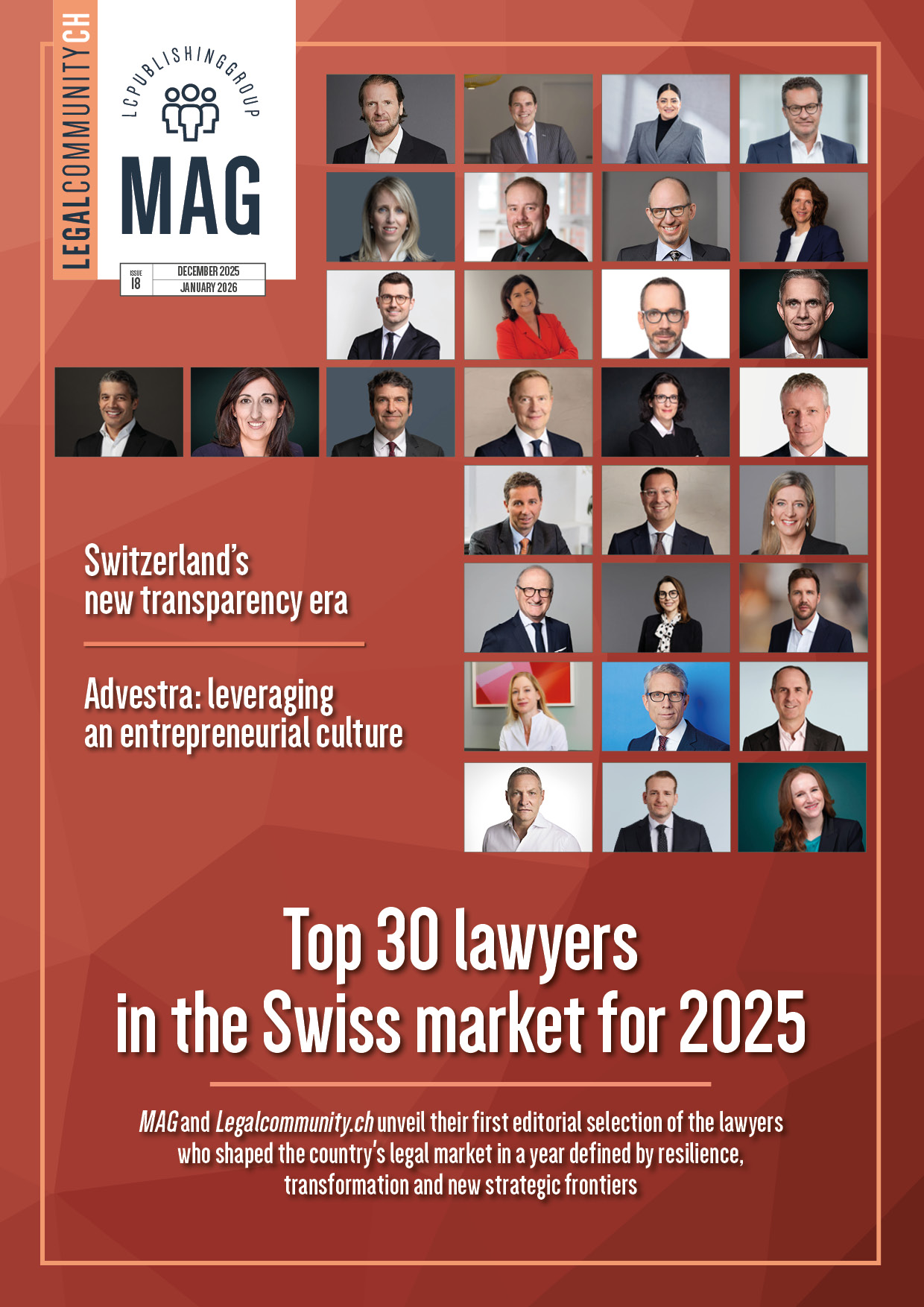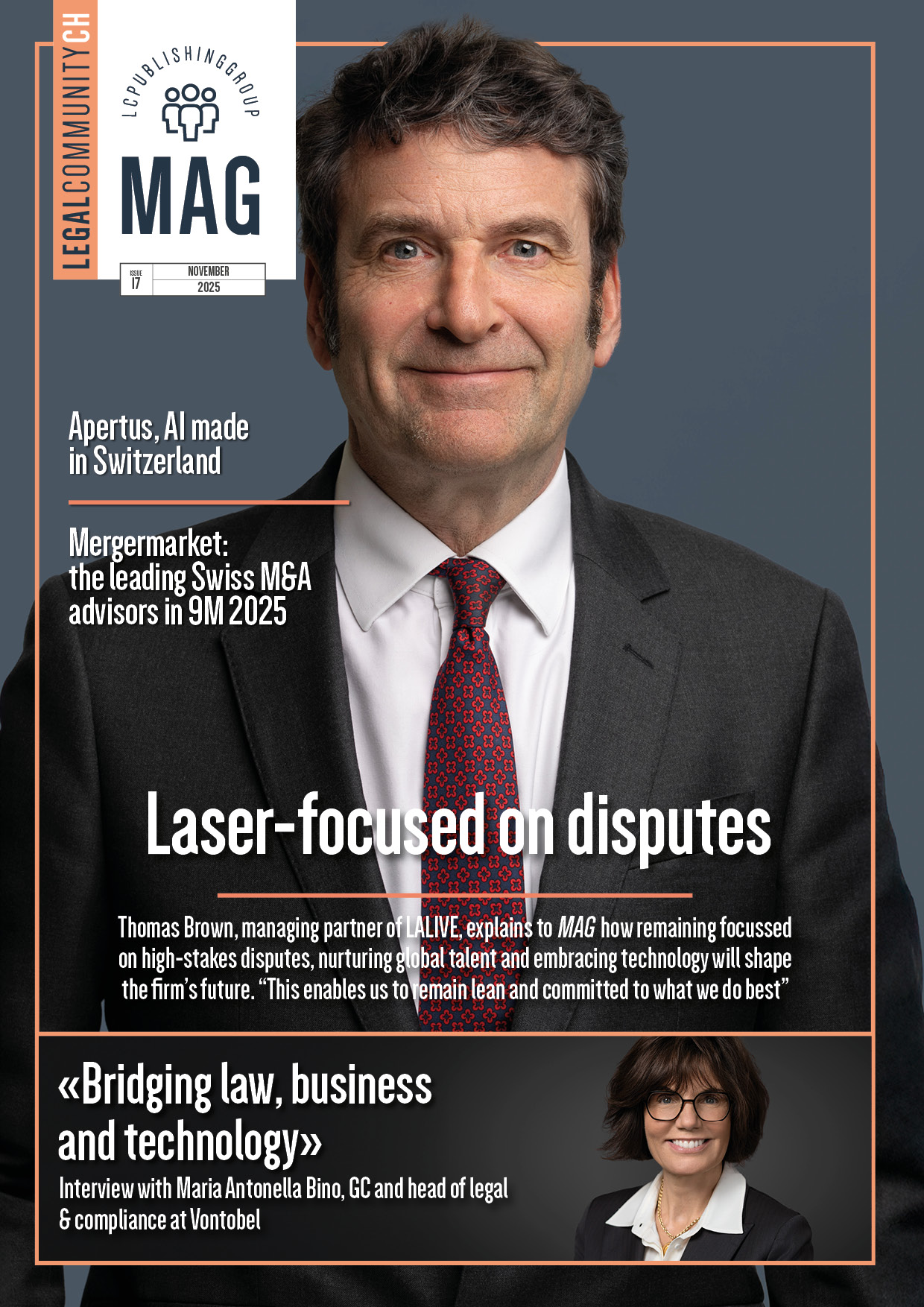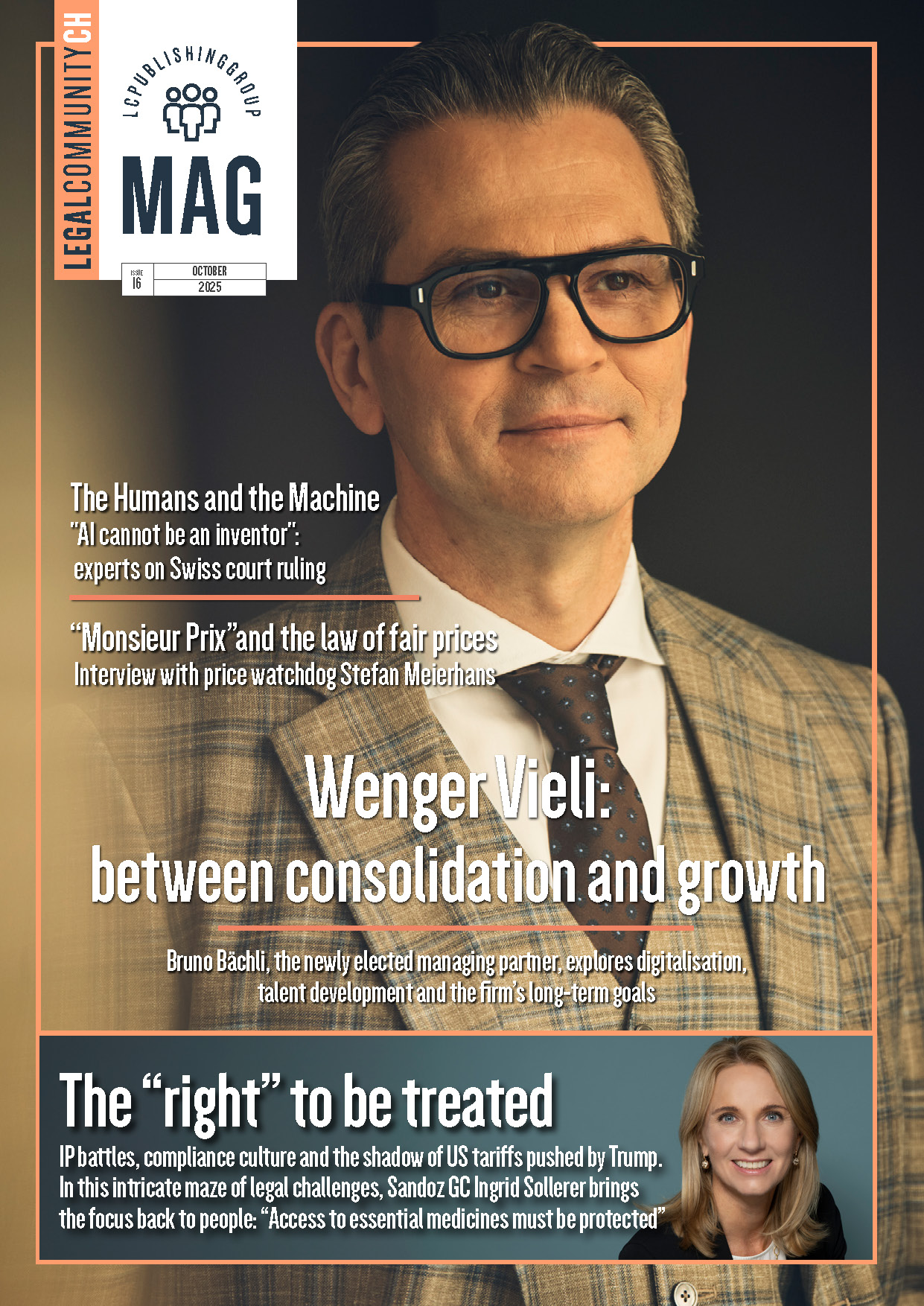Anaford: The international challenge based in Switzerland
By Mercedes Galán.
A Spanish lawyer working in a law firm based in Switzerland can provide an interesting perspective on international legal issues and the differences in legal practices between the two countries. This is the case of María Ferrando, lawyer, journalist and partner at Anaford, a law firm that was founded in Switzerland. At Legalcommunity CH we had the opportunity to talk to her about her career and professional experience.
You embark on the adventure of opening a commercial law department in Anaford’s Zurich office. How did you get there?
I arrived in Switzerland when Anaford was still very young in 2014 and came to open the corporate department. Until then it was a firm that was mainly dedicated to tax law, but it was a firm that was growing very fast and whose needs were changing, or rather expanding, to advise not only individuals, but also their companies and the different commercial transactions they carried out. In many operations, tax and commercial law go hand in hand. Since then, our corporate department has grown a lot and we are now made up of 9 people.
In this regard, what is your experience in international law and how does it differ from legal practice in Spain?
Before joining Anaford, I worked in the corporate department of a large firm such as Uría Menéndez, so I already had a lot of contact with international transactions, all of them in English. However, when I arrived at Anaford, I broadened my international knowledge through practice and hard work, as I worked on transactions very frequently in different countries inside and outside the EU. Now, as a partner in the Corporate and Commercial Department, I advise our clients who are generally groups of companies with subsidiaries in various countries around the world, private clients with assets spread across different states or families with members living in different countries within and outside the EU.
How would you describe the lawyer who works internationally but outside our borders?
A lawyer working in the international context develops different skills and a different sense of smell than a lawyer working in purely national law, not better, not worse, but different. You learn to see transactions in a more global way and to perceive the cultural part of the operations and not only the legal part. Working in the international environment requires you to have an open mind and a general knowledge of the law. A lawyer in an international law firm works with various jurisdictions, both civil and common law, and has to be able to understand them and have a critical spirit. We do not advise on Dutch or Swiss law, but we must be able to know what our client needs in order to know what and how we should seek advice from our colleagues in each jurisdiction and unify it with the rest. I would also highlight the ability to analyse and, above all, the need to have a sense of smell, that sixth sense that makes you see where the problems or contingencies are or, moreover, where they could be and, of course, the solutions, even if it is not in your own jurisdiction or in the law you have studied and know best. That, of course, is also given to you by experience.
In which legal areas does Anaford specialise and what is the demand for your services in Switzerland?
Anaford’s main legal areas are tax, commercial and corporate law. And the demand in Switzerland is very diverse within these areas. Every day we get different cases and new challenges. With clients coming from all over the world or living all over the world, the advice is often complex, mixing not only different civil law jurisdictions, but also common law.
What are the key features of the Swiss legal system and how does it compare with the Spanish legal system?
From the judicial and fiscal point of view, it is a more decentralised system, with the courts being cantonal (and not a few cantons), whereas in Spain the judicial system is still more centralised. In terms of tax law, one of the main differences at the level of individuals is the possibility to benefit from the LUMP SUM regime in certain cantons. In addition, the direct taxation of companies in certain cantons, their tax rate, is very competitive. But neither of the above two areas is my area of expertise. Where I see less difference is in commercial and corporate law. We can find types of companies that are very similar to Spanish companies, especially public limited companies and limited liability companies. But of course, certain requirements change, such as, for example, that in some types of companies at least one of the administrators must reside in Switzerland, the parameters for auditing a company may be different, the rights of the partners have particularities, but in general, they do not differ as much as it might seem. As a difference, I could point out that it is a more agile system, less formalistic. Likewise, in terms of M&A contracts and operations, Switzerland, like all countries, regulates its own processes and particularities, but in general, the operations are the same.
How does your firm deal with the resolution of cross-border conflicts and international disputes?
The most important thing for us is to avoid cross-border conflicts and international disputes. Our job is to prepare cases, documents, contracts in a sound manner, taking into account all international, legal, commercial and cultural components. However, when the dispute arises, it will depend on what the parties have agreed in the contract, first of all, whether any system of negotiation or mediation has been regulated prior to arbitration or court. It will also differ depending on where the Arbitration Court or Tribunals are located, the law agreed to govern the contract, etc. In certain cases, we have a local office or arbitration lawyer with whom we work closely to defend our client’s interests.
Given Switzerland’s important role in the financial sector, how does this affect the legal practice in your office?
The Swiss banking and financial system is very stable and, in addition, because of its tradition in this sector, it has excellent professionals (literally from all over the world) and offers modern and very diverse financial products. This attracts a lot of foreign capital and entrepreneurs who, from here, want to invest in other countries. At Anaford, with our international experience, we advise them from the structuring or restructuring of their group or companies in order to be able to invest effectively in one or more specific countries to the full implementation and purchase of the asset(s). In addition, we advise not only clients and entrepreneurs, but often also the banks themselves.
With growing concerns about privacy and data protection, what are the main legal implications in Switzerland?
As we all know, Switzerland has a long history of banking secrecy and data protection, and it is one of the foundations of its system. Many of its clients appreciate this, often for reasons of security (not only political but even physical security). However, these rights should not be confused with money laundering. Banks and administration service providers have made and continue to make a tremendous effort to determine the origin of the funds behind every business transaction, transfer or account opening. KYC-AML (“Know your Client – Anti Money Laundering”) procedures are as rigorous as in the rest of Europe. Before each transaction, our clients must complete all the requirements of these procedures or the money is returned or blocked.
What legal challenges do foreigners who want to settle in Switzerland face, and how can they be addressed?
I don’t think there is a particular challenge, it is not a difficult jurisdiction. In fact, it is very open in terms of taxation and trade. The authorities also sit down with the citizen or the entrepreneur and listen to their needs.
What do you consider to be the advantages and challenges of working as a lawyer in Switzerland?
In my opinion, one of the main advantages is to be able to work in an international ecosystem, with people from all over the world. The representation of professionals from different countries here in Switzerland is extraordinary. It is also extraordinary what you can learn from them. This, in turn, means getting out of your comfort zone and facing something unknown.
What advice or recommendations would you give to lawyers considering an international career in Switzerland or elsewhere?
They should certainly do so, which is a challenge, but we Spaniards are very well prepared to face international challenges. As a piece of advice, they should have an open, global mind, develop the ability to have a general perspective (to see what the English call “the big picture”) and to work with very different lawyers and jurisdictions, understanding their needs, looking for solutions and matching the different legislations.
















